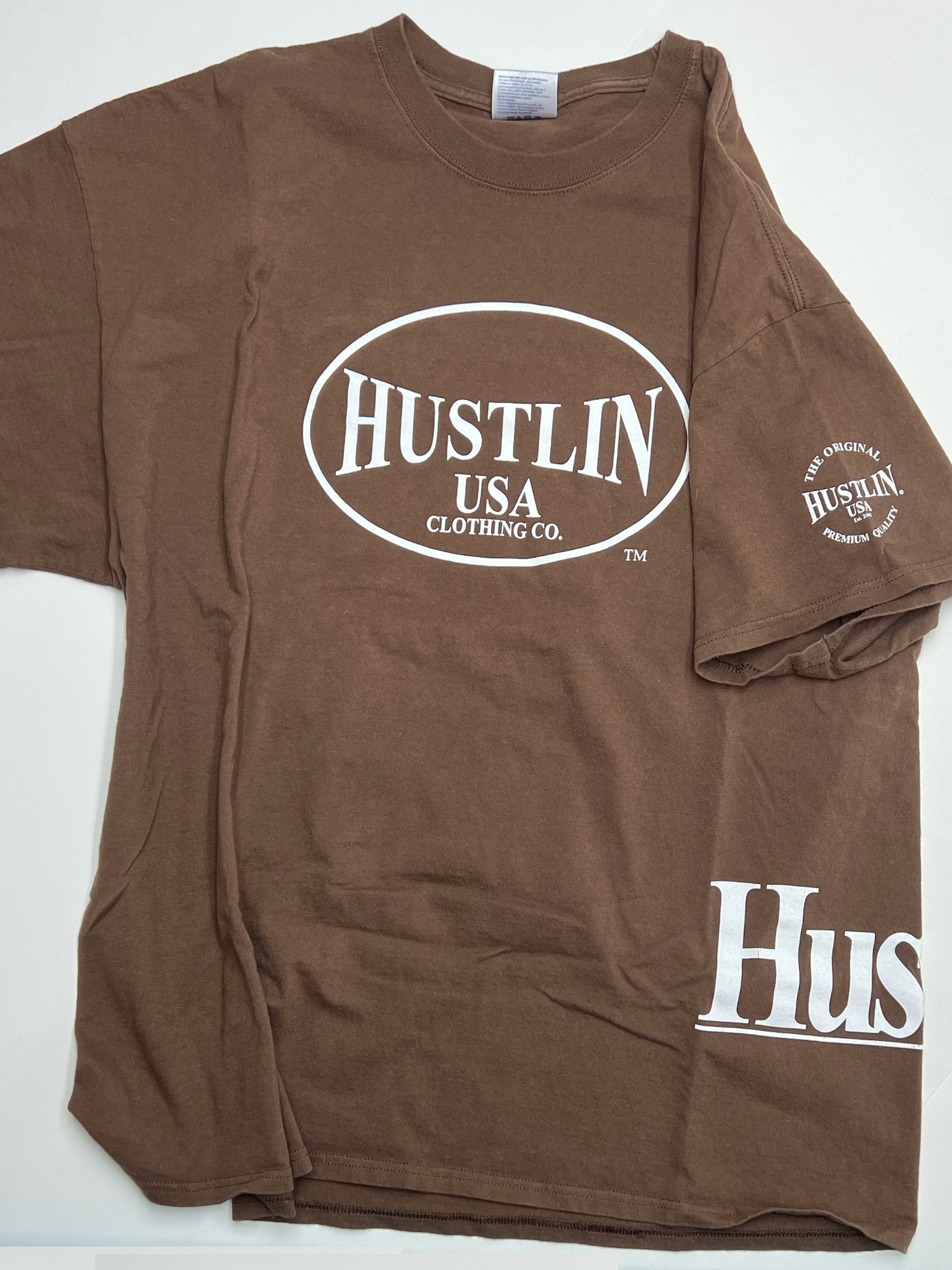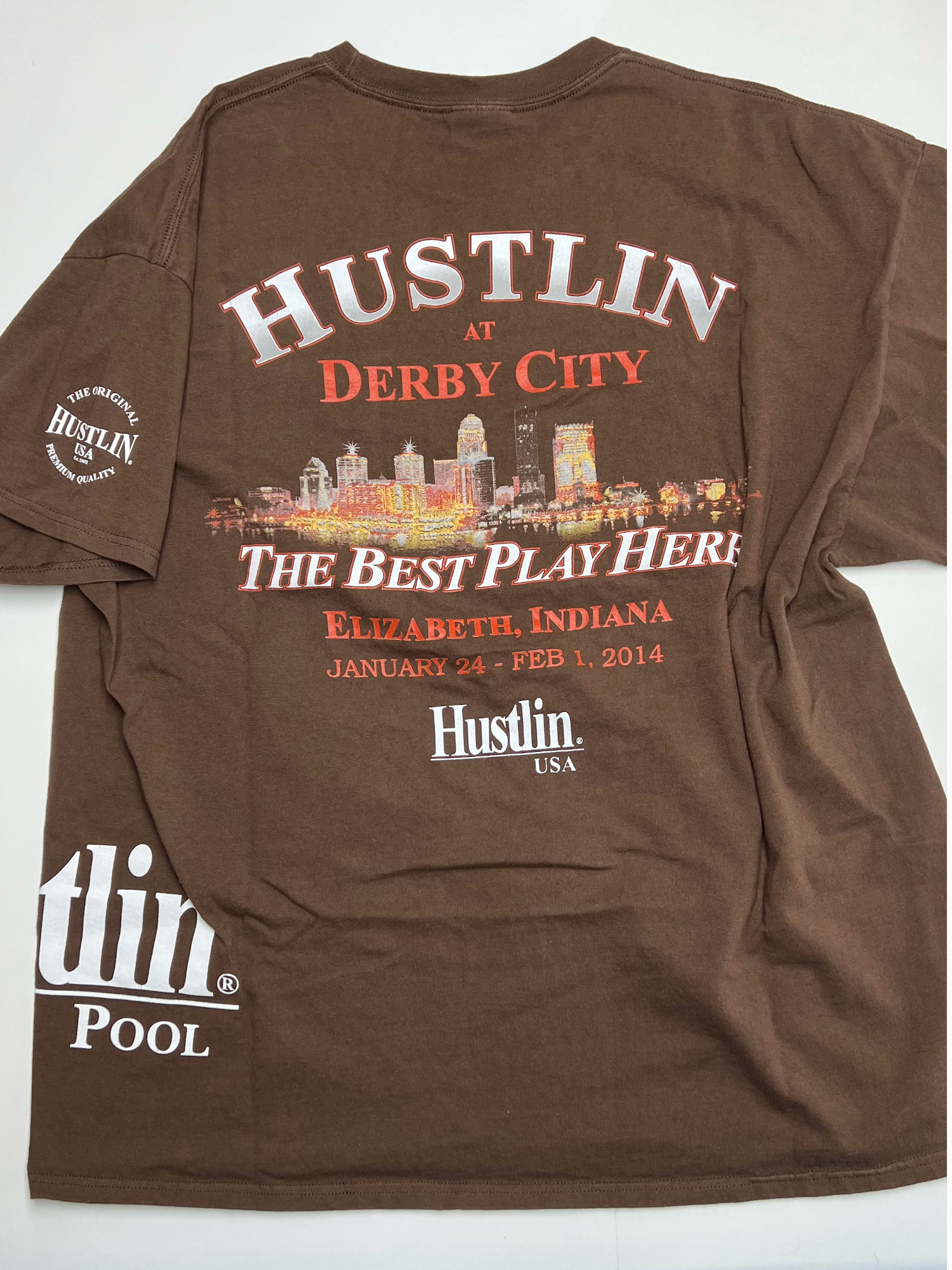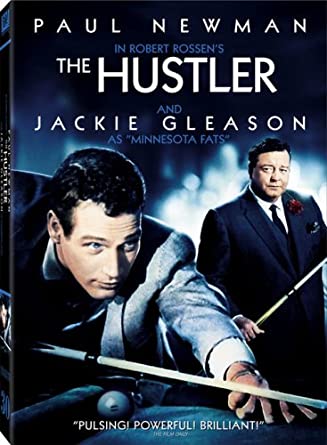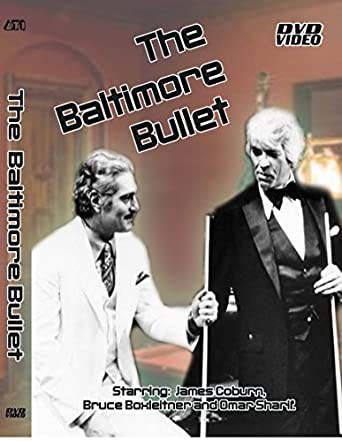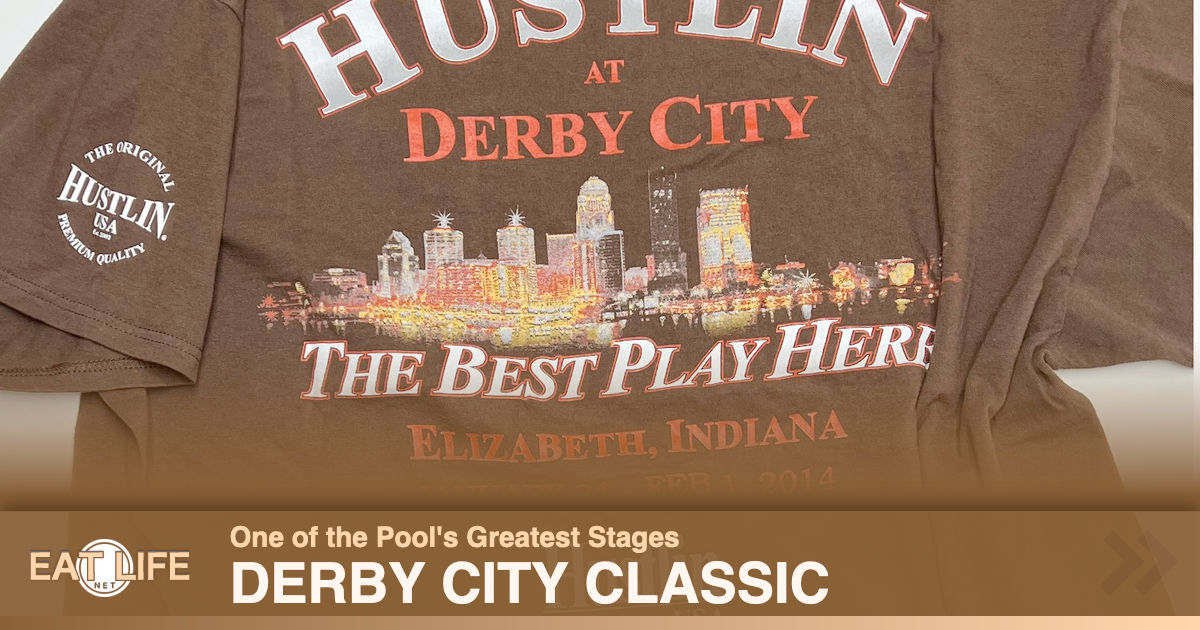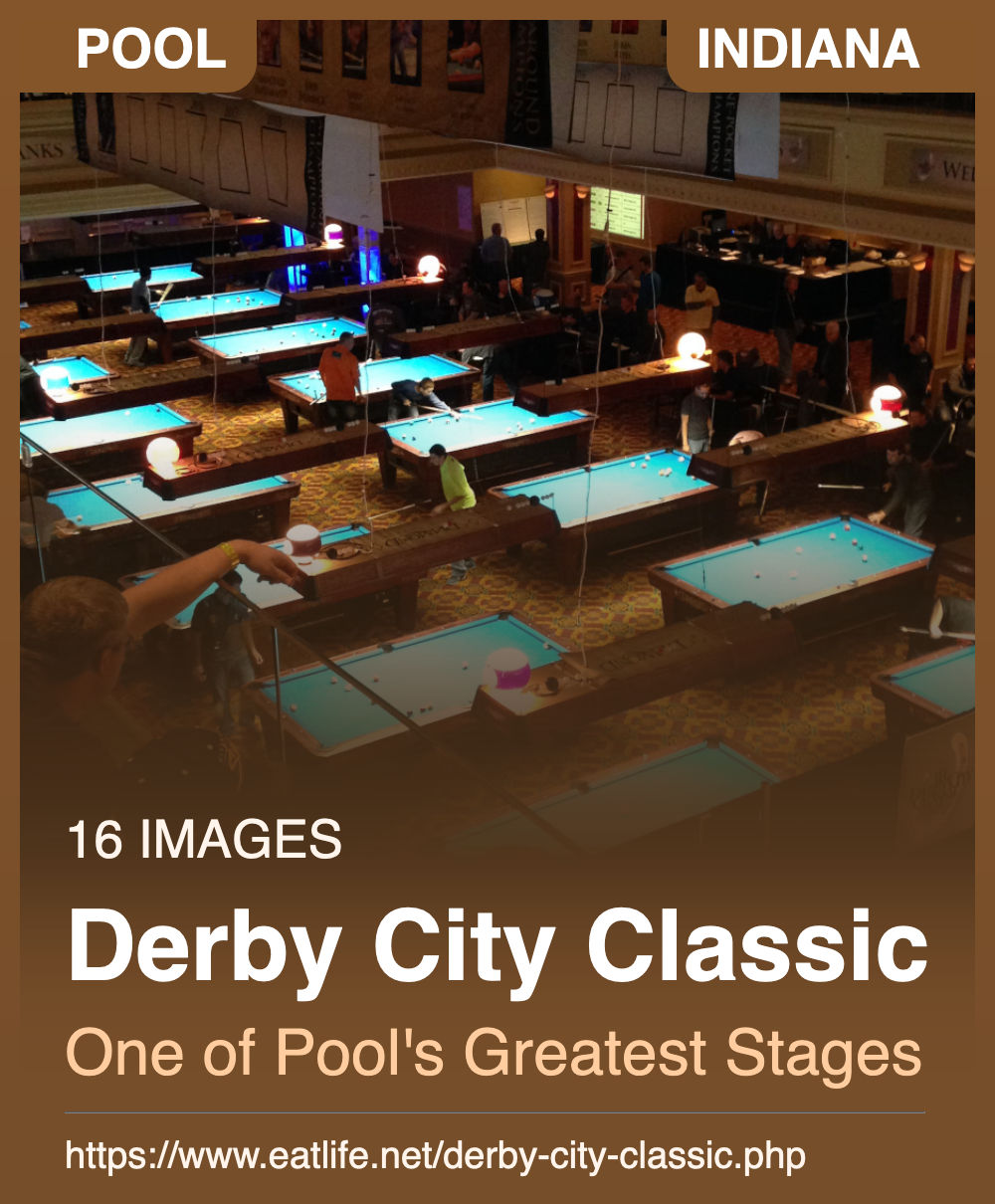Derby City Classic
Hundreds of tables, numerous vendors and stellar match play sets the scene for one of the pool's greatest stages.The individual who makes the best decisions will have a fighting chance to lift the all around championship trophy at the end of the week.
There are 7 keys to winning at the derby:
- Quick Recovery:
High-level competition causes everyone to make mistakes. Even "lock down" safeties will get returned, which will make things seem "unfair." When playing in such a talented field, this is inevitable. The champion will be the person who can recover quickly from the frustration of bad breaks and maintain confidence and composure. Every player is going to get bad rolls, the key will be to accept this from the first shot and embrace the challenge.- Shot-Making:
Because the tournament consists of 3 events, each having a shorter race format, the player who can choose and commit to the right shot and execute it, will be in the mix as the weekend approaches.- A Controlled Break:
Whether the game is bank pool, one pocket or 9-ball, cue ball control is imperative. Losing control of the cue ball will equate to games lost over the course of the tournament.- Patience:
You must give every single shot your upmost attention. Taking unnecessary risks will inevitably result in losses. Playing smart pool and being patient enough to keep your opponent locked down will be another key to success. Pace will also factor. With the length of the tournament there will possibly be some very long days.- Creativity:
The winner will be the person that is the most creative, imaginative and the one that continually exhibits strong visualization techniques.- Being Able to Slow Everything Down:
When we're under pressure, most of us have the tendency to speed up. If we allow this to happen it is inevitable that we will make mental mistakes. Top professional players tend to slow everything down to stay in a nice rhythm.- Health:
It is not just about eating the right foods or strengthening muscles; players are now trying to build physical and mental stamina so they can maintain focus throughout a 10-12 hour day.https://www.pooldawg.com/article/pooldawg-library/keys-to-winning-at-the-derby-city-classic
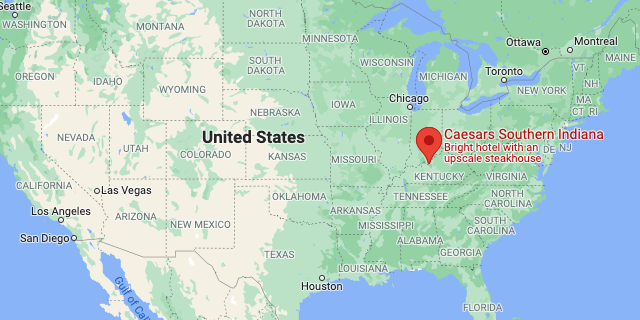
https://www.google.com/maps/place/Caesars+Southern+Indiana
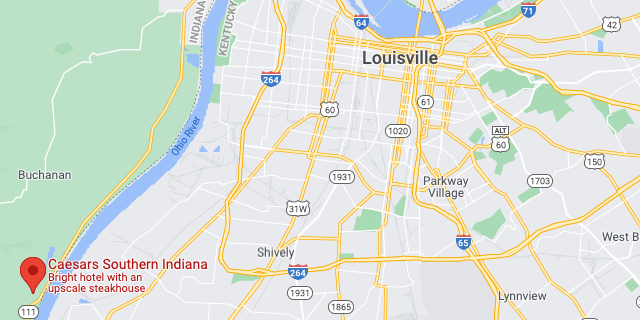
https://www.google.com/maps/place/Caesars+Southern+Indiana
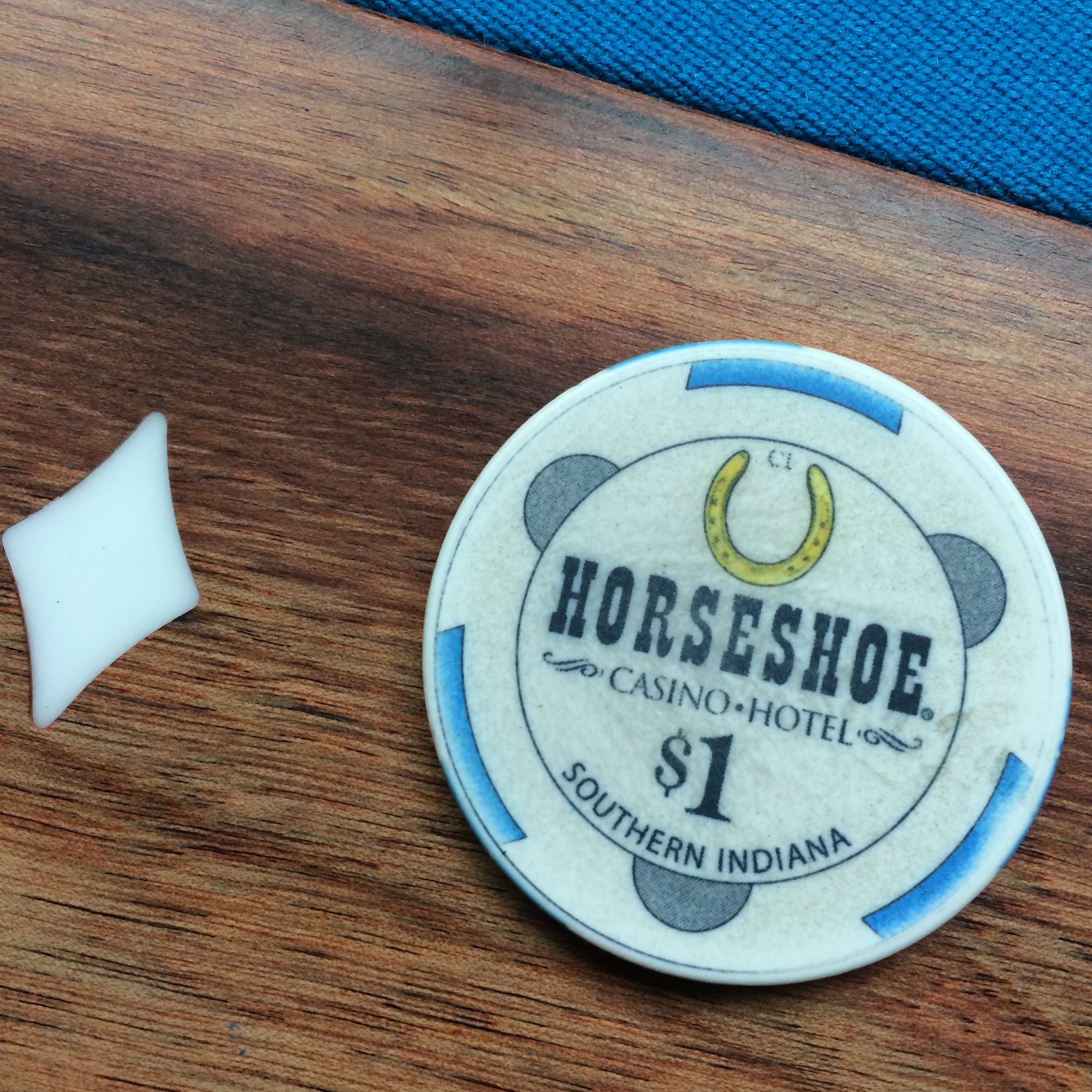
In 1994 a ballot proposal to allow riverboat gambling was passed by the residents of Harrison County, Indiana. So Caesars built Horseshoe Southern Indiana right across the Ohio River from Louisville, Kentucky.
It opened in 1998. The casino part was in a four-story boat that was the largest riverboat casino in the world. In 2015 Indiana changed the law to allow casino gambling on land so the casino has since moved onto dry land in a huge renovation, and the riverboat is no longer part of the casino complex.
It has since changed names too it's now called Caesars Southern Indiana.
The Derby City Classic is an annual pool convention and tournament held every January at the Horseshoe Southern Indiana casino in Elizabeth, Indiana near Louisville, Kentucky. It is eight days long and offers various disciplines of pocket billiards competitions.Derby City Classic:
- The annual convention has been in existence since 1997.
- Diamond Billiard Products is the title sponsor of the event.
- The lead tournament promoter is Greg Sullivan from Diamond.
- Sullivan was inspired to create the DCC by the Johnston City Classic. The Johnston City Classic (1961 - 1972) was organized with the purpose of bringing America's top pool gamblers together.
- During the eight-day-long convention, competition is held consecutively in three major disciplines, bank pool, nine-ball, and one-pocket.
- An All-Around Champion title is awarded each year to an individual player who participates in all three disciplines, and is determined by an ascending point scale and high quality of play.
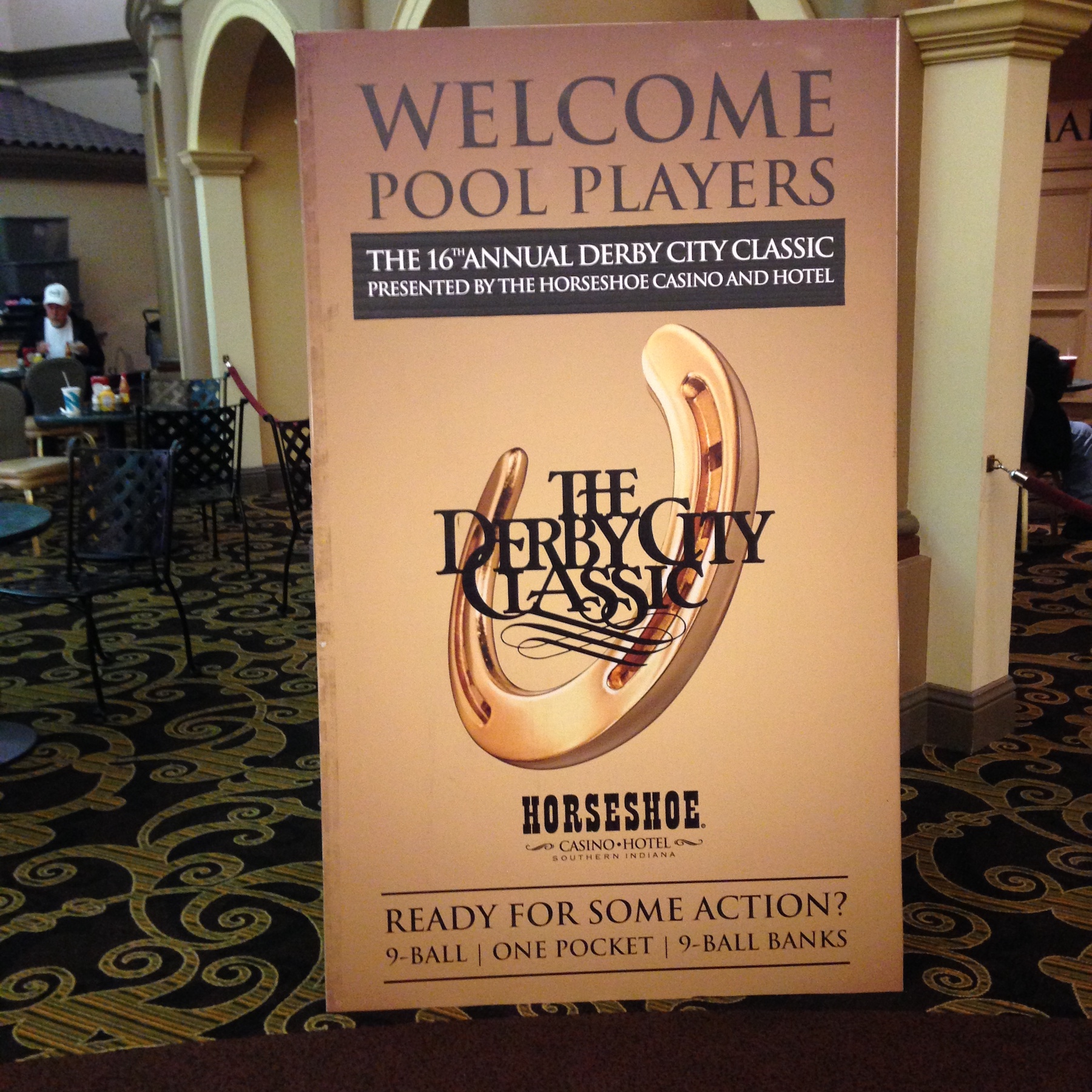

 Greg Sullivan:
Greg Sullivan:The "Derby" was sired by Diamond Billiards' Greg Sullivan in 1999. 200 plus entrants vying for titles in three disciplines; Bank Pool, One Pocket, and 9-Ball graced Louisville KY's Executive Inn. Due to DCC's irrepressible growth, by 2009, the action was upgraded to the grander Horseshoe Southern Indiana Casino, just across the border, in Elizabeth, IN.
Today, more than double that original amount are expected to participate. That stat makes it the most successful, competitively attended pro pool tournament in the world.
Greg's ambition grew from experiencing the Johnson City hustler's convention at the tender age of 16. He was immediately smitten, in fact, he still has his original entry ticket!
It was that passion for pool that eventually drove him to create the Diamond pool table to his exacting, standardized specifications that would catapult pool from a game to a sport.
The table's success allowed Greg, with Chad in the background managing the numbers, to create a pool tournament which would attract the full gamut of cuemen. He wanted those who were funded by gambling on themselves and those who excelled in the immediacy of tournament action.
Sullivan beamed as he stated without the glimmer of a boast, "The most satisfying compliment I've ever received is that DCC is like Johnson City... on steroids."
https://www.azbilliards.com/a-brief-history-of-the-derby-city-classic
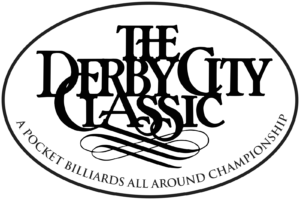
One Pocket:
- Fifteen balls are racked in a triangle pattern with the head ball on the spot. Use the triangle rack.
- Any scratch or foul results in loss of a ball. If you have no balls to spot, you "owe" a ball. You must spot what you owe at the end of your inning in which you have balls available to spot. The incoming player has cue ball in hand behind the head string after a scratch or foul. If a scratch or foul is "slept" and subsequently remembered, the ball is spotted after each player has shot once.
- If a player commits 3 successive fouls in one game, it is loss of game. The opponent must notify the shooter that they are "on 2" fouls, immediately before the shooter's next inning.
- Any ball count score that reaches negative five (-5) is loss of game.
- The first player to legally pocket eight (8) object balls in their pocket wins the game.
Nine Ball:
- Nine balls are racked in a diamond pattern with the 1-ball in front and the 9-ball in the middle. The remaining balls are random, except the 2-ball cannot be on the back of the stack. Pattern racking is not allowed. The 9-ball is racked on the spot.
- The breaking player may push out on the shot immediately after the break, except on an illegal break.
- Any scratch or foul results in cue ball in hand.
- If a player commits 3 successive fouls in one game, it is loss of game. The opponent must notify the shooter that they are "on 2" fouls, immediately before the shooter's next inning.
- Object balls must be shot in rotation. The first player who legally pockets the 9-ball, including 9 on the break or combination shot on the 9, wins the game.
Nine Ball Banks:
- Nine balls are racked in a diamond pattern with the head ball on the spot. Use the triangle rack.
- The shooter must call the intended pocket and exact number of cushions before shooting. Short rails do not count.
- Kick shots are not allowed to count as a banked ball.
- Any scratch or foul results in loss of a ball. If you have no balls to spot, you "owe" a ball. You must spot what you owe at the end of your inning in which you have balls available to spot. The incoming player has cue ball in hand behind the head string after a scratch or foul. If a scratch or foul is "slept" and subsequently remembered, the ball is spotted after each player has shot once.
- The first player who legally pockets five (5) banked balls wins the game.
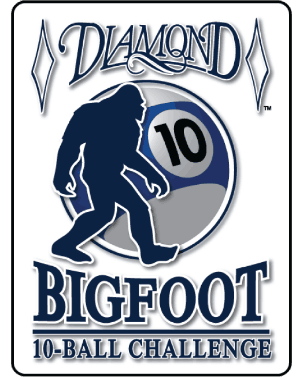 Diamond Bifgoot 10 Ball Challenge:
Diamond Bifgoot 10 Ball Challenge:Invitational event for 16 of the best players. All matches are played on the Diamond Bigfoot 10 foot table. Single Elimination Race to 11:
- Lag for the opening break, then Alternate Breaks
- Rack Your Own, No Pattern Racking allowed
- 1 ball on the front, 10 ball in the middle, the rest are random
- Must use the Accu-Rack and the Referee will remove the rack
- Break behind the Headstring, determined by EDGE of the cue ball
- On the Break shot, if no ball is pocketed, at least four object balls must be driven to a rail, or the shot is a foul
- You may push out after the break
- This is 10-Ball Express Rules
- No call pocket on any shot and no called safety
- 10-ball on the break spots back up immediately
- An object ball knocked off the table stays down, except the 10-ball spots back up
- 3 Foul Rule is in effect and must give Warning "on 2"
- All ball fouls is in effect
- Penalty for all fouls is cue ball in hand
- DO NOT give up balls, must pocket the last ball
- Jump cues are not allowed, you can jump with your playing cue only
- You may aim with your cue, but your hand must remain in contact with the cue
- The first player to legally pocket the 10 ball is the winner of the game
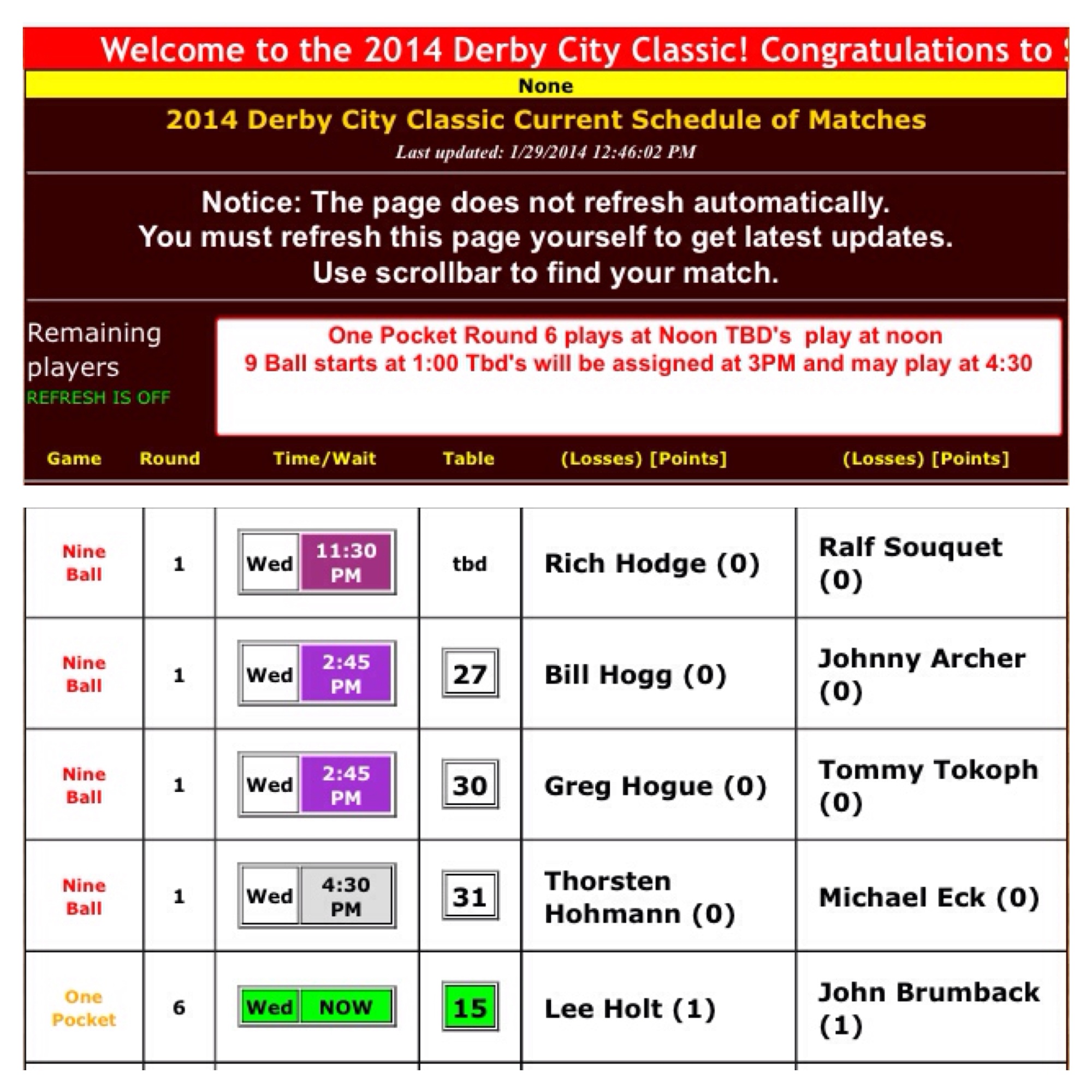
That's my name! I played Ralf Souquet in the 2014 Derby City Classic Nine Ball. He was running out on me controlling each game as one would expect but then he broke dry!
I look at the table and immediately figure out that I can run out to a stop shot on the clustered 7 ball, lock him up, get ball in hand, then run out and win a game. I did exactly that! That was the only game I won though. He beat me 9-1 and I was playing great.
After the match we shake hands and as I'm putting my cue away the dude who was on the table next to us tells me that I ran the balls out of order. What!?! He said I went 1, 2, 4, 3, 5, 6, 7. I said no way! I mean I was nervous but not that bad! I go over to Ralf and tell him that the dude thought I made the balls in the wrong order and if so then I am totally sorry and I did not intend to and would never do that on purpose.
Ralf says "I didn't see that... I would have noticed." Then the other dude from the table next to us nodded and said yeah you did I saw it. I apologized again saying oh man I am so sorry then Ralf says to me "I tell you what: next time we play you owe me a foul." All four of us laughed.
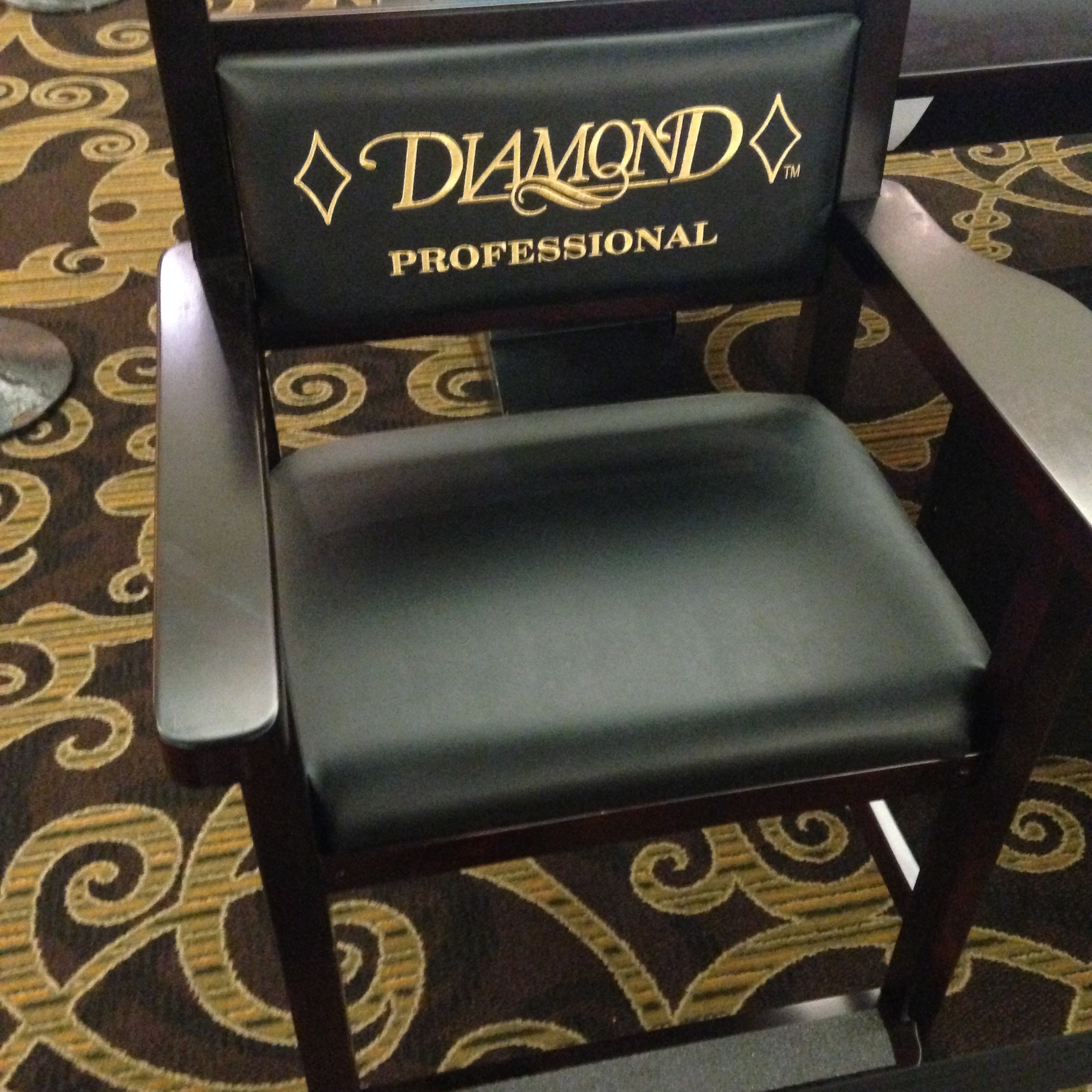

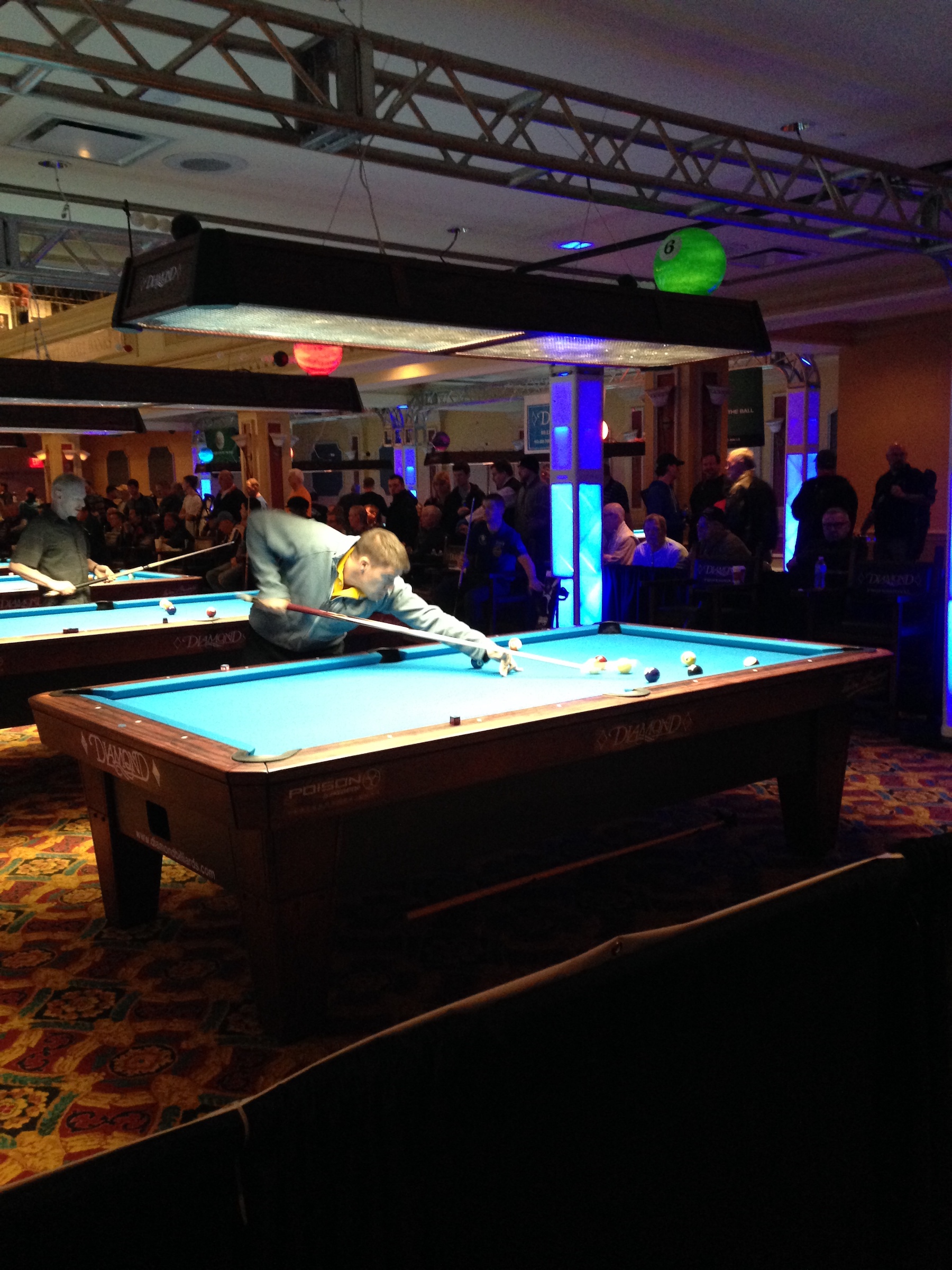
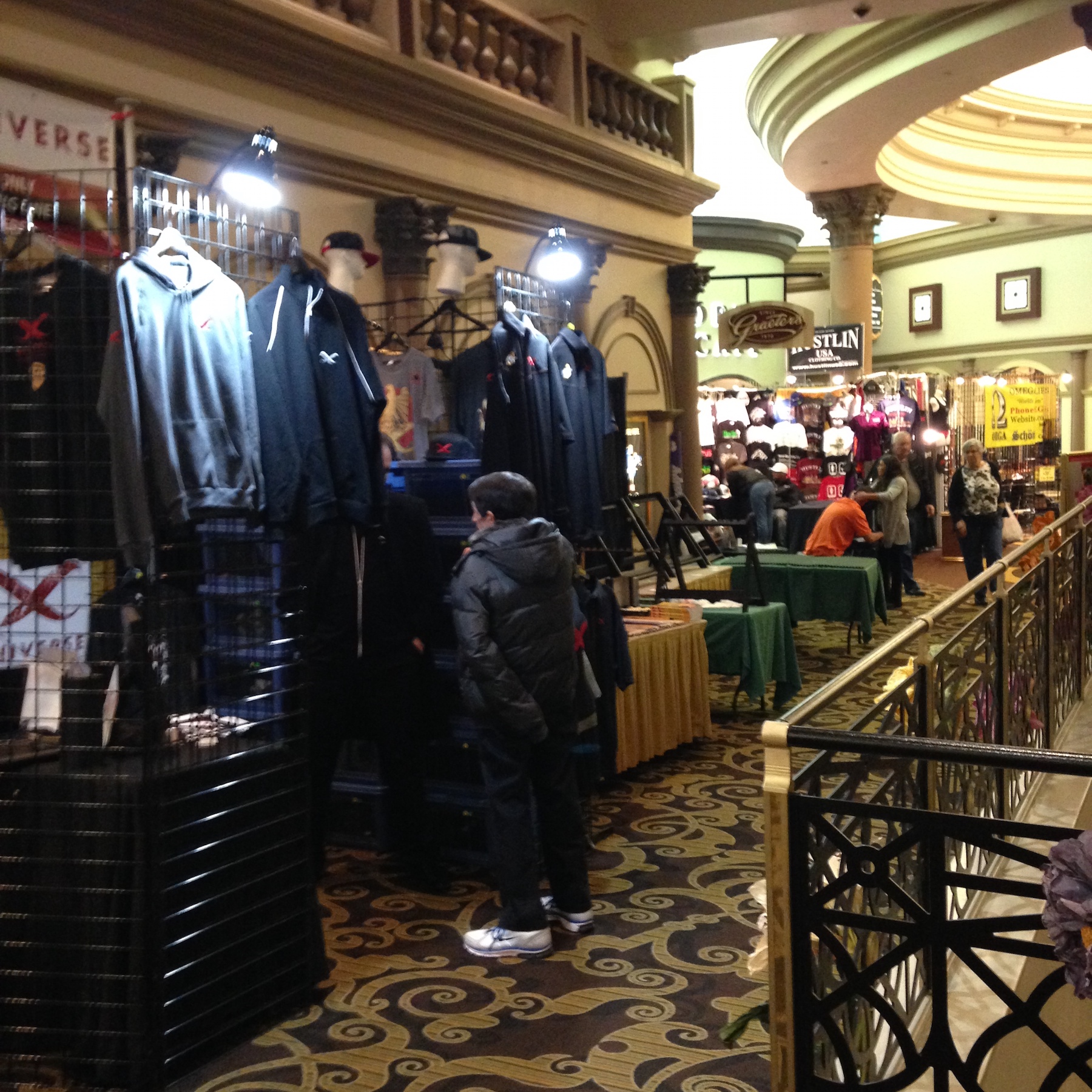
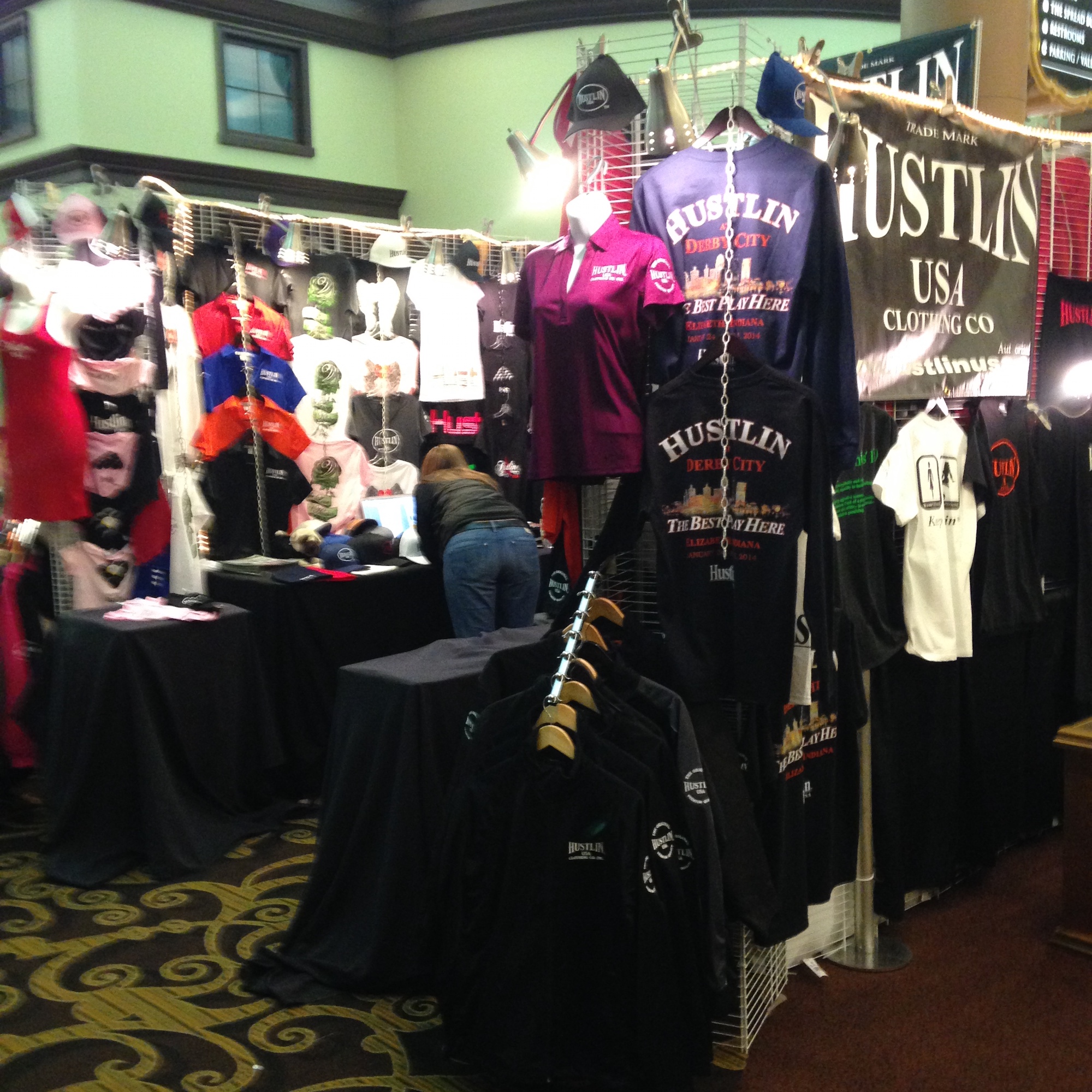
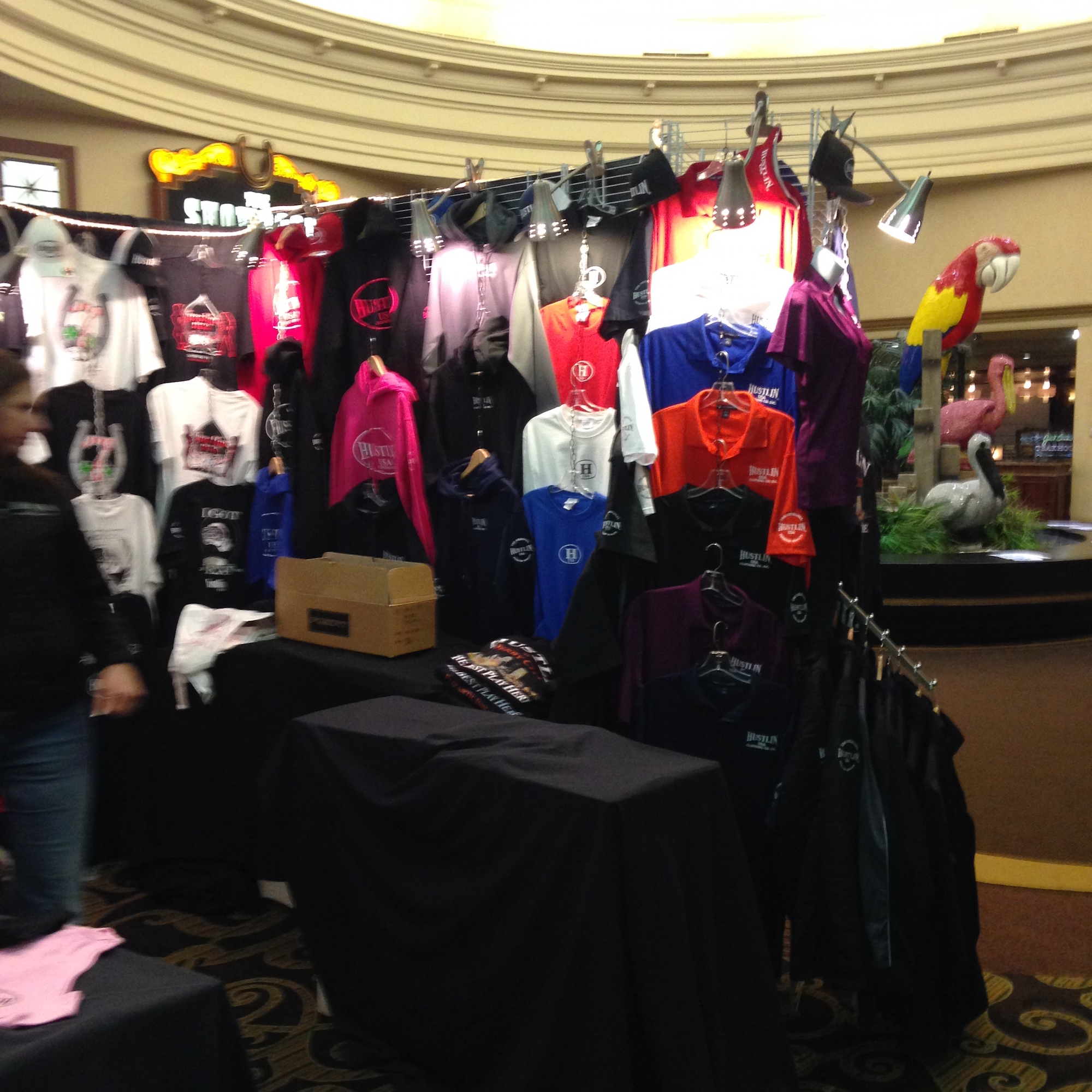

Look at that sexy pool cue in the middle!

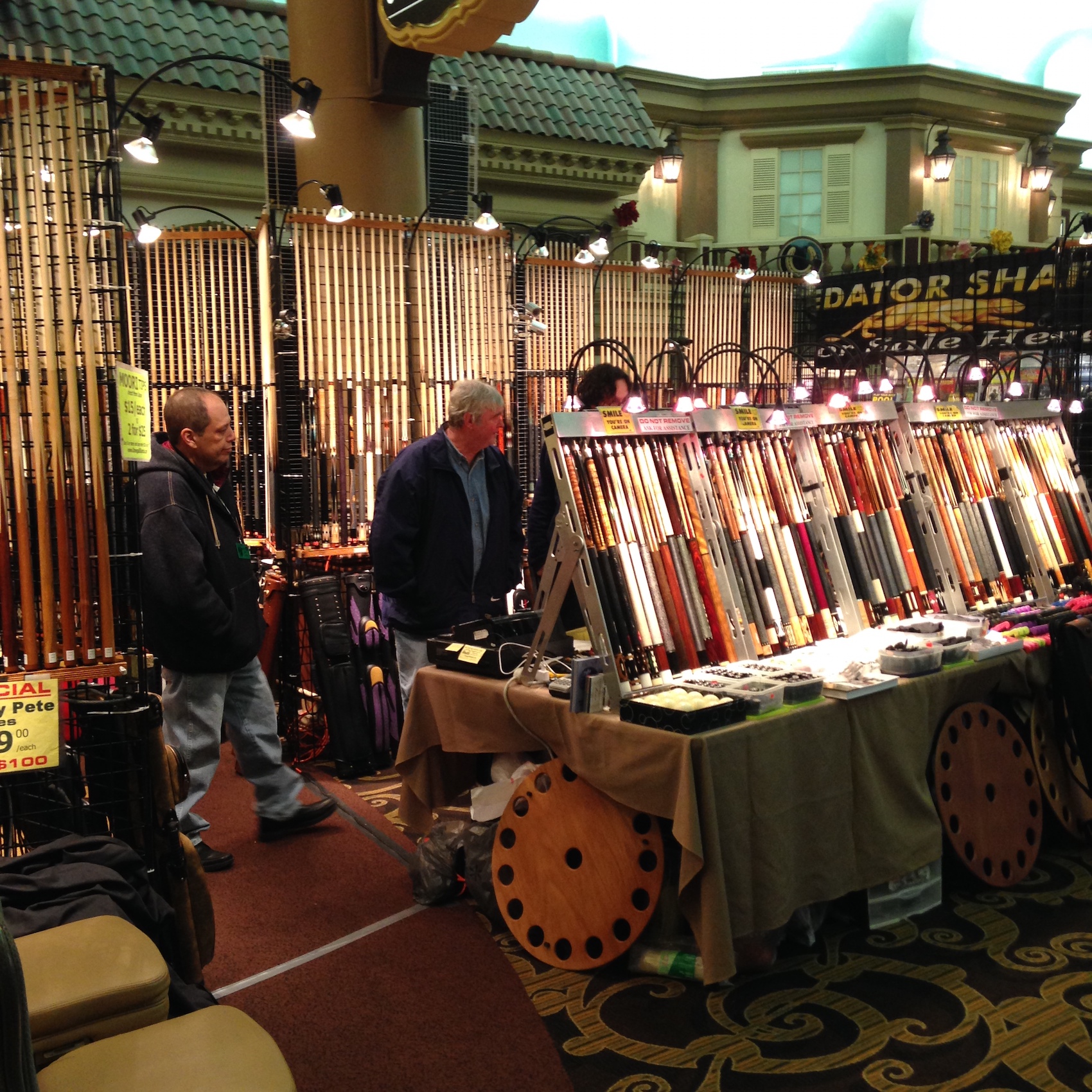
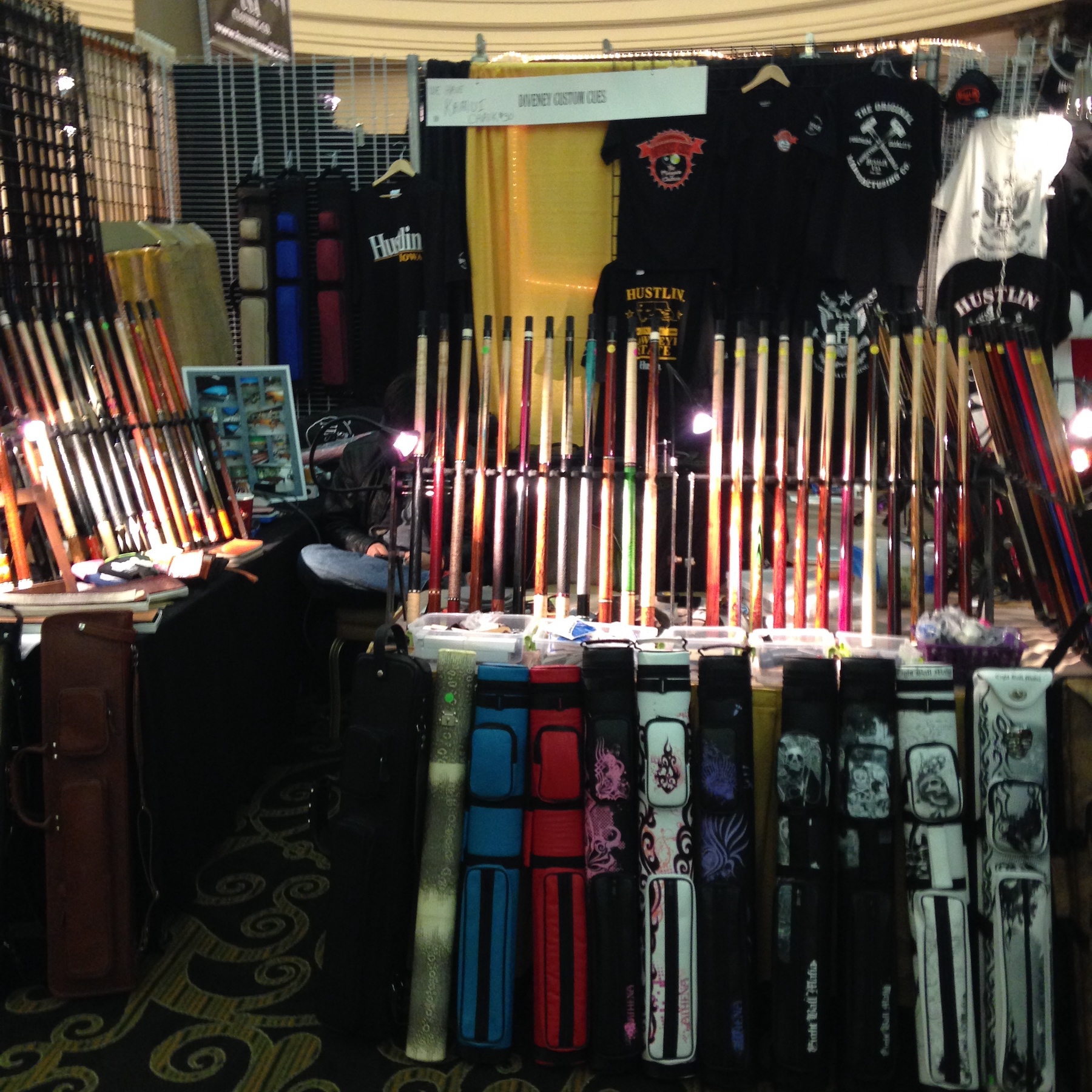
| Past Champions: | ||
|---|---|---|
| 1999 | Efren Reyes One Pocket: Efren Reyes Nine Ball: Troy Frank Nine Ball Banks: Nick Varner | |
| 2000 | Dee Adkins One Pocket: Nick Varner Nine Ball: George SanSouci Nine Ball Banks: Shannon Daulton | |
| 2001 | Shannon Daulton One Pocket: Buddy Hall Nine Ball: Shannon Daulton Nine Ball Banks: Jose Parica | |
| 2002 | Jose Parica One Pocket: Cliff Joyner Nine Ball: Mika Immonen Nine Ball Banks: Larry Price | |
| 2003 | Larry Nevel One Pocket: Jose Parica Nine Ball: Shannon Daulton Nine Ball Banks: Danny Harriman | |
| 2004 | Efren Reyes One Pocket: Efren Reyes Nine Ball: Ralf Souquet Nine Ball Banks: Jason Miller | |
| 2005 | Efren Reyes One Pocket: Efren Reyes Nine Ball: Efren Reyes Nine Ball Banks: Dave Matlock | |
| 2006 | Jason Miller One Pocket: Efren Reyes Nine Ball: Ralf Souquet Nine Ball Banks: Jason Miller | |
| 2007 | Efren Reyes One Pocket: Efren Reyes Nine Ball: Niels Feijen Nine Ball Banks: Stevie Moore | |
| 2008 | Francisco Bustamante One Pocket: Gabe Owen Nine Ball: Ralf Souquet Nine Ball Banks: Larry Price | |
| 2009 | John Brumback One Pocket: John Schmidt Nine Ball: Shane Van Boening Nine Ball Banks: John Brumback Ten Ball: Lee Van Corteza | |
| 2010 | Efren Reyes One Pocket: Scott Frost Nine Ball: Efren Reyes Nine Ball Banks: John Brumback Ten Ball: Efren Reyes | |
| 2011 | Shane Van Boening One Pocket: Shane Van Boening Nine Ball: Dennis Orcollo Nine Ball Banks: Alex Pagulayan Ten Ball: Rodney Morris | |
| 2012 | Shane Van Boening One Pocket: Shane Van Boening Nine Ball: Shane Van Boening Nine Ball Banks: John Morra Ten Ball: Francisco Bustamante | |
| 2013 | Francisco Bustamante One Pocket: Corey Deuel Nine Ball: Alex Pagulayan Nine Ball Banks: Francisco Bustamante Bigfoot Ten Ball: Dennis Orcollo | |
| 2014 | Dennis Orcollo One Pocket: Efren Reyes Nine Ball: Shane Van Boening Nine Ball Banks: Dennis Orcollo Bigfoot Ten Ball: Shane Van Boening | |
| 2015 | Alex Pagulayan One Pocket: Alex Pagulayan Nine Ball: Warren Kiamco Nine Ball Banks: Shannon Daulton Bigfoot Ten Ball: Shane Van Boening | |
| 2016 | Alex Pagulayan One Pocket: Alex Pagulayan Nine Ball: Shane Van Boening Nine Ball Banks: John Brumback Bigfoot Ten Ball: Jayson Shaw | |
| 2017 | Dennis Orcollo One Pocket: Billy Thorpe Nine Ball: Dennis Orcollo Nine Ball Banks: Francisco Bustamante Bigfoot Ten Ball: Jayson Shaw | |
| 2018 | Francisco Bustamante One Pocket: Francisco Bustamante Nine Ball: Chris Melling Nine Ball Banks: Corey Deuel Bigfoot Ten Ball: Roberto Gomez | |
| 2019 | Skyler Woodward One Pocket: Francisco Bustamante Nine Ball: Skyler Woodward Nine Ball Banks: Billy Thorpe Bigfoot Ten Ball: Chang Jung-Lin | |
| 2020 | Dennis Orcollo One Pocket: Billy Thorpe Nine Ball: Lee Vann Corteza Nine Ball Banks: Dennis Orcollo Bigfoot Ten Ball: Jayson Shaw | |
| 2021 | - | |
| 2022 | Fedor Gorst One Pocket: Fedor Gorst Nine Ball: Francisco Sanchez-Ruiz Nine Ball Banks: Fedor Gorst Bigfoot Ten Ball: Joshua Filler | |
| 2023 | Fedor Gorst One Pocket: Tony Chohan Nine Ball: Fedor Gorst Nine Ball Banks: Fedor Gorst Bigfoot Ten Ball: Shane Van Boening | |
| 2024 | January 19 - 27 | |
| 2025 | January 17 - 25 | |
Johnston City
For those who have never heard of it, the famous tournament started out as a tiny backwoods affair. Eventually, however, it grew into one of the most celebrated pool competitions in American history. The first Johnston City event featured one-pocket only and almost no spectators. The last had nine-ball, straight-pool, one-pocket — and so much gambling that it was raided by federal agents.The first of these events was conducted in 1961. The last was in 1972. They were organized by the brothers George and Paulie Jansco and drafted off the popularity of The Hustler, the famous movie featuring Paul Newman and Jackie Gleason. The tournaments were noteworthy for many reasons, not the least of which was their elevation of nine-ball as the official tournament game of pool and because they helped to establish Minnesota Fats as America's most famous pool player. The tournaments were also the first significant pool events to bring gambling out of the shadows. In fact it was the gambling - and the romance that surrounded it - that attracted the national media to Johnston City. Whether for good or bad, this is simply a fact.
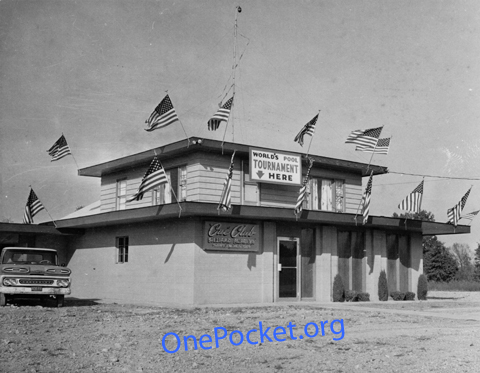
The world of pool in America woke up to a remarkable new kind of tournament that shook the pool establishment out of a deep slumber. It was an unusual event on several fronts:
- Unlikely location for a major national pool tournament, deep in rural southern Illinois.
- It was a game, One Pocket, not recognized by the established sanctioning body of pool in America at that time, the Billiard Congress of America.
- The tournament boldly featured a number of known hustler pool players who had not participated in the few sanctioned events of the mid-century - whether by their own choice, or because they were not invited due to their reputations.
- The promoter was a total newcomer to pool tournament promotions, a fellow who had his own roots more in the gambling side of pool than the establishment side of pool, the remarkable George Jansco.
So who were these Jansco Brothers, and what made them think a small town in southern Illinois could become the "Billiard Capitol of the World"?
George was a very good pool player himself, so in about 1959 George purchased a 9' Macon (later named Gandy) pool table which he placed in the small building in back of the J&J Ranch, along with an old couch on one wall that was raised up so invited onlookers could watch the action. It was his own personal one table poolroom. It was here that he hosted road players like:
- ‘Fats' (who was living in Dowell, about an hour away)
- Hubert Cokes (who was from Evansville, IN, about an hour away the other way)
- Marshall ‘Squirrel' Carpenter
- Eddie Taylor
- Bill ‘Weenie Beenie' Staton
- Earl Schriver
- Others
- It was around that table, or at the J&J bar, that George's tournament idea was originally hatched.
Summer of 1961:
Out behind their nightclub, George & Paulie built The Cue Club for the purpose of holding the first tournament. The new building's main arena was designed to seat 200 spectators. This appears to have been the first time a building was built specifically to host a pool tournament. George mailed out many posters with cover letters to introduce this tournament.
The Hustler Movie:
Released September 25, 1961, exactly one month before the Jansco's first tournament kicked off. It would be expected that some of the movie publicity rubbed off on the Jansco tournament.
That first tournament ran from October 25 to November 15, establishing the long-running style that characterized all of the Johnston City events
The two faces of pool:
This came during a particularly down time for pool tournaments, when even the BCA had nearly closed their doors and there were virtually no major tournaments being held. Even though the game was the hustler's preferred game of One Pocket, George dressed up the players and the presentation to give the event and players a professional shine. For the first time ever, the two faces of pool – the clean tournament image on the one hand and the backroom hustlers on the other – were brought together into one event, and the media loved it.
All Around Format:
Emboldened by the success of the first tournament, for the second year (1962) George expanded the tournament from just One Pocket to the unique all-around format that became the hallmark of his tournaments, including Straight Pool and 9-Ball along with One Pocket. This was one of the first professional 9-Ball tournaments ever held, if not the first, and it was also the first all-around pool tournament.
1963 national TV coverage:
After a scouting mission on November 14, CBS came to Johnston City to cover the finals, which was the first time major TV covered either a 9-ball or One Pocket pool tournament. Following the success of the 1963 tournament and the excitement of having national TV coverage, George went to work making bigger and better plans for the next tournament. For the 1964 event, he and Paulie built an addition to the Show Bar, the first ever specially built pool tournament theatre ("The Pit") in time for the '64 tournament.
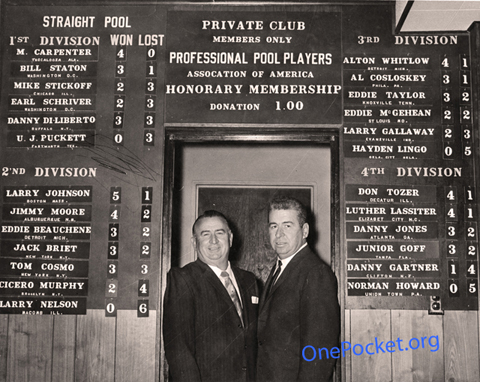
Wide World of Sports:
A bidding war between CBS and ABC netted George a paid TV contract with ABC 'Wide World of Sports' for $8000, which helped boost the 1964 prize fund to $20,000. The BCA also sanctioned Johnston City for the first time that year, and the billiard press talked about George Jansco having "gone respectable." Brunswick provided 4 tables, two of which were utilized in the pit. Prior to the '64 event, George consulted with a lighting expert to design special large black curtain-skirted light boxes over the two feature tables, which he kept burning all night to avoid changes in the playing conditions. These unique lights provided unprecedented shadow-free table illumination, yet the deep canopies left the large crowds in shadow so the players could better focus on the match at hand.
1967 Ball in Hand:
For the first time, 9-Ball was played "On any foul (except the break), opponent may place the cue ball anywhere on the table." In prior years, "push-out" was the standard for 9-Ball.
1969 Paulie Jansco takes over:
On June 4, 1969, George died of a "massive cerebral hemorrhage", the very day that he had finalized plans to build his long dreamed of hotel. From 1969 on, Paulie took over.
1972 FBI Raids:
For what turned out to be the final Johnston City tournament in the fall of 1972, Paulie dropped Straight Pool, so this final tournament consisted only of One Pocket and 9-Ball.
The fed's (IRS, with the support of the Illinois Bureau of Investigation & Illinois State Police) raided the tournament for gambling early in the morning of Oct 26th, after seeing "newspaper reports of large-scale gambling taking place at the tournament." The raid derailed the schedule for finishing the tournament, which had to be extended into the following week. Afterwards, Paulie railed against the press for lack of tournament coverage and vowed never to hold another tournament in Illinois – marking the end of an era for the Jansco's and Johnston City.
https://www.onepocket.org/JohnstonCity.htm
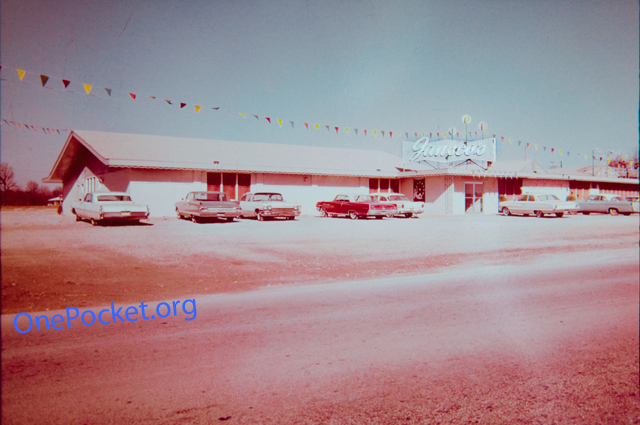
| Past Champions: | ||
|---|---|---|
| 1961: | Johnny Vevis One Pocket Only | |
| 1962: | Luther Lassiter One Pocket: Marshall Carpenter Nine Ball: Luther Lassiter Straight Pool: Luther Lassiter | |
| 1963: | Luther Lassiter One Pocket: Eddie Taylor Nine Ball: Luther Lassiter Straight Pool: Luther Lassiter | |
| 1964: | Luther Lassiter One Pocket: Eddie Taylor Nine Ball: Luther Lassiter Straight Pool: Luther Lassiter | |
| 1965: | Harold Worst One Pocket: Larry Johnson Nine Ball: Harold Worst Straight Pool: Harold Worst | |
| 1966: | Joe Balsis One Pocket: Eddie Kelly Nine Ball: Eddie Kelly Straight Pool: Joe Balsis | |
| 1967: | Luther Lassiter One Pocket: Larry Johnson Nine Ball: Luther Lassiter Straight Pool: Irving Crane | |
| 1968: | Danny Jones One Pocket: Larry Johnson Nine Ball: Danny Jones Straight Pool: Al Coslosky | |
| 1969: | Luther Lassiter One Pocket: Luther Lassiter Nine Ball: Luther Lassiter Straight Pool: Joe Russo | |
| 1970: | Keith Thompson One Pocket: Ronnie Allen Nine Ball: Keith Thompson Straight Pool: Luther Lassiter | |
| 1971: | Jimmy Marino One Pocket: Jim Rempe Nine Ball: Jimmy Marino Straight Pool: Luther Lassiter | |
| 1972: | Spring: Danny DiLiberto One Pocket: Larry Johnson Nine Ball: Billy Incardona Straight Pool: Danny DiLiberto Straight Pool Women: Jean Balukas | |
| 1972: | Fall: Larry Johnson One Pocket: Jimmy Fusco Nine Ball: Larry Johnson | |
Held at the Janscos' Showbar in Johnston City, Illinois, from 1961 to 1972. After the FBI raided the tournament in 1972, the action was moved to Nevada where gambling is legal.
- Ralph "Minnesota Fats" Wanderone never won a title, but he still ended up with most of the money according to insiders.
- "LA" Richie Florence was one of the hottest young hustlers, but Fats still took him to the cleaners. (Ironically, Florence won the 1972 Minnesota Fats Classic!)
- Cisero Murphy was a black hustler who finished second in the 1967 one-pocket tournament.
- Utley (U. J.) Puckett rivaled Fats as the game's biggest talker, but he could play too.
- Thomas Austin "Amarillo Slim" Preston was another champion storyteller, gambler and character.
- Jimmy "Pretty Boy Floyd" Mataya had multiple 100+ straight pool runs, but missed a straight-in shot in the clutch and almost fainted.
- "Cowboy" Jimmy Moore finished second in the first Johnston City tournament, to "Connecticut" Johnny Vevis.
- Peter Margo was another young ace.
- Jack "Jersey Red" Breit was yet another young, up-and-coming contender.
- Steve "Cookie Monster" Cook was a youthful bank and one-pocket specialist.
- Billy "Cornbread Red" Burge was one of the great hustlers and money players.
- Hubert "Daddy Warbucks" Cokes was a millionaire oilman and a noted gambler; he gave pointers to a 16-year-old Cecil "Buddy" Hall aka "The Rifleman."
- Bill "Weenie Beenie" Staton was a one-pocket expert and the president of the Billiard Players Association of America (BPAA).
- Johnny Ervolino was a top-notch player and gambler.
- Don "The Duke" Tozer was a noted trick shot artist.
- Al Miller was a Wisconsin state champion.
- V. J. "Ugly" Prichett was a Texas state champion.
- Martin "Omaha Fats" Kaiman was one of the best one-handed players of all time.
- Jim Rempe was known as "King James" and also as "Harpo."
- Jimmy Fusco was another young, top-notch talent.
- Bill "Nine Ball Billy" Incardona was also known as "Pittsburgh Billy" and "Mustache Charlie."
- Cole Dickson "shoots like the Lone Ranger" according to a tournament promo.
- Al "The Plumber" Winchenbaugh was a nine-ball specialist.
- Charles "Low Down Dirty Red" Jones was also known as "Preacher Red."
- Norman "Hitch" Hitchcock was another fine player.
- Lamar King was a one-pocket player from Kansas City, Missouri.
- Charles DeValliere was a player from Alexandria, Virginia.
- Bryan Houser was from nearby Centralia, Illinois.
- Rocky Dee was a former professional fighter and character actor in movies.
Harold Worst:
Harold Worst died of terminal brain cancer at age 37, shortly after winning the overall championships at the Johnston City and Stardust tournaments in 1965. That year, he also won the three-cushion billiard championship in Belgium and an English snooker championship on a 6x12 table (despite never having played professional tournament snooker at that level before). Worst's success is all the more stunning because he didn't start playing pocket billiards seriously until his early thirties. He died at the height of his pool powers. According to knowledgeable insiders like Ronnie "Fast Eddie" Allen, the great Luther Lassiter dodged Worst at nine-ball, and the legendary Eddie Taylor dodged him at one-pocket. So the best players were avoiding playing Worst at their best games. Was Worst the best pool/billiards player of all time? Yes, according to people in the know like Ronnie Allen, Minnesota Fats, Jay Helfert, Freddy "the Beard" Bentivegna and "Champagne" Eddie Kelly ...
The Raid:
The FBI raided the Johnston City pool hustler tournament in 1972, arresting some of the top hustlers for gambling. This raid was the basis of the climactic scene in the movie The Baltimore Bullet. After the raid, the Jansco brothers decided to move the tournament to Las Vegas, where gambling is legal. According to Jimmy Reid, here's what happened ...
Rudolph "Minnesota Fats" Wanderone was a huge celebrity, with his own TV show in the late 60′s. While being interviewed by Midwest television and radio reporters about the upcoming tournament, in an effort to promote the tournament, Fats said there would be a ton of after-hours action for spectators to enjoy. Then while being interviewed, Fats went on to say: "Jimmy Reid is here from LA and wants to play any man from any land, any game he can name, for any amount he can count, anything he can bring." Hearing this the FBI's "antennae" went up, and the raid was planned. Since the tournament was in Illinois, the FBI decided they could charge any pros gambling during the tournament that weren't from Illinois under the Interstate Gambling Act. This would allow them to arrest out-of-state players that had come to gamble, and more importantly would allow them to confiscate and keep their money. They took over $200,000, which was eventually returned to the twelve indicted players.
WORLD POOL CHAMPIONSHIP 1960s LEGENDARY POOL HUSTLERS
This is a real piece of pocket billiards history! Aired on ABC Wide World of Sports!
The Jansco Brothers World All Around Pocket Billiards Championship aka The Hustlers' Jamboree or The Hustlers Tournament in the 1960s.
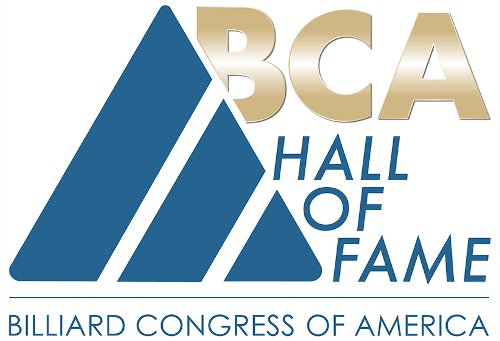 BCA HOF Inducted 2019:
BCA HOF Inducted 2019:The Southern Illinois club owners Paul and George Jansco founded the famed Johnston City Hustlers Jamboree and All-Around Pool Championship in the 1960s. The Janscos contributed to the pool's romanticized image as a gunslinger's activity. Their promotion of the gambling aspect of the sport contributed to its rise in popularity with the public, with their tournaments drawing media coverage from major television networks and national magazines like "Sports Illustrated." So popular were the Johnston City events that the Jansco's launched a second event, the Stardust Open in Las Vegas.
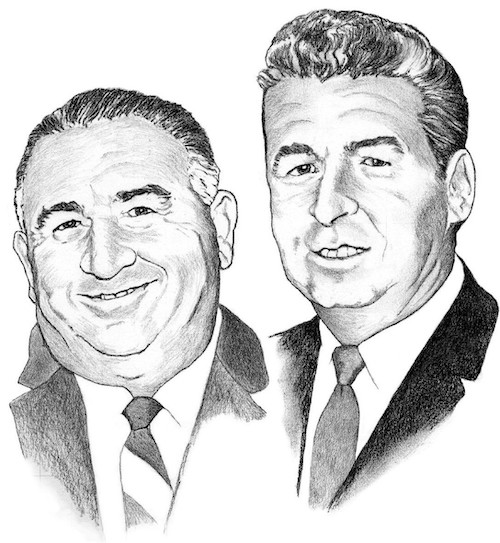
The Janscos could also be credited with moving 9-ball and one-pocket into the game's forefront during a time in which straight pool was considered the only professional game. They were also among the first promoters to welcome integrated fields, paving the way for players like African-American Cicero Murphy to compete for world titles. George Jansco passed away in 1969. Paul Jansco died in 1997.
Johnston City Pool Hustling
TV Feature of Johnston City, Illinois in 1972, where pool hustlers used to meet yearly before the authorities raided the event. Minnesota Fats (Rudolph Wanderone) is featured.
 Johnston City Hustler Jamborees:
Johnston City Hustler Jamborees:Johnson City and the Jansco Brothers played a very important roll in the History of this great sport. During the tournaments that were held from the 1960's through the 1970's Pool and Billiards was brought to the fore front of American society due to Television. During the events that were held in Johnson City many of the Most famous players of the 1950's, 1960's and 1970's were first introduced to the American Public through news coverage. The Jansco Brothers were the first of many famous promoters, and due to this the general public was given an insight into the lives of some of the countries famous gamblers.
I went to Johnston City five times in the 60's. If you brought a camera in there, you might get shot. Most of these guys preferred to remain anonymous after the tournament was over. Even Conrad Burkman from the Billiard News had trouble getting photos of the players. They were not camera friendly to say the least.I do have a copy of the 1967 program. The list of winners (from Johnston City and the Stardust) that you see now in many places was compiled by me many years ago. I felt that the winners of these tournaments should at least be recognized, so many years ago I set about piecing together all the winners of the various divisions. It took me several weeks of research and talking to dozens of players to figure out who won what and when.
I believe it was '71 when I was there. I was out back in the action area when a friend came in and said, "Come with me, you gotta see this." When we entered the tournament room he pointed out a kid playing in a straight pool match on the far table. After watching this slender kid with a Beatle haircut shoot just a few balls in I said, " Dang , this kid has a better stroke than 90% of the players here. He's going to be a great player when he gets older." My friend replied, "Your wrong...... its not a he, its a she !" Turns out it was Jean Balukus. She was about twelve at the time. (But I was right about the great player part).
